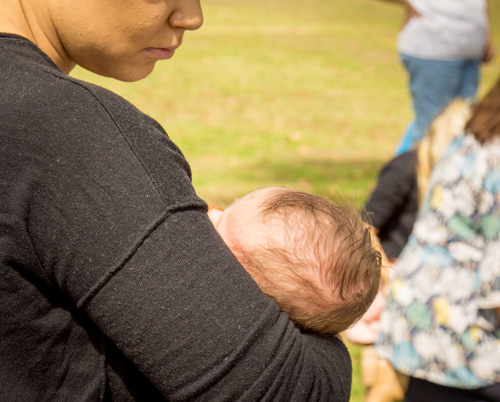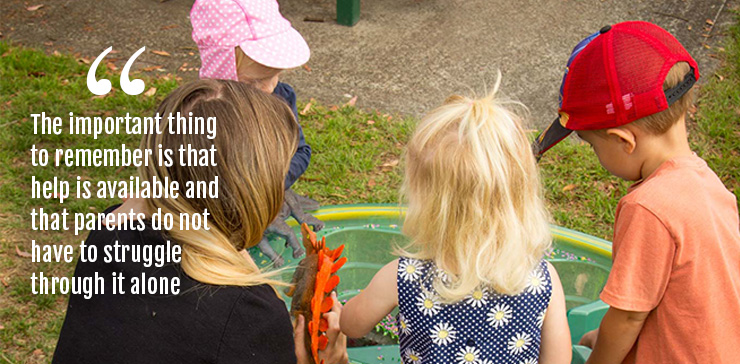How to spot Perinatal Depression and Anxiety


Expecting a new baby and the news of a birth is usually greeted with congratulations. Along with expressing their joy, family and friends often warn parents about the lack of sleep. It is not uncommon for new mums and dads to feel tired and overwhelmed, however, there are cases where their distress is ongoing and is due to more than just missing sleep. Pregnancy and childbirth is a time when everything is new and challenging. It can be hard to know whether your reactions and emotions are within the normal range.
There is increasing awareness of perinatal (which refers to during pregnancy and the year following birth) depression and anxiety, including its effects and how widespread it is. Just like anxiety disorders and clinical depression, it is a serious illness that can affect anyone. Up to 1 in 5 expecting or new mums and 1 in 10 dads may be affected1 regardless of age, gender, background and even whether or not the person affected is the biological parent.
Signs and symptoms of perinatal depression and anxiety can vary but may include2:
- Panic attacks
- Persistent worry
- Development of OCD symptoms
- Increased sensitivity to noise or touch
- Changes in appetite
- Extreme lethargy
- Memory or concentration problems
Factors that can cause perinatal depression and anxiety include3:
- A history of mental illness
- A difficult or complex pregnancy
- Birth trauma
- A premature or sick baby
- Feeding challenges
- Sleep deprivation

The important thing to remember is that help is available and that parents do not have to struggle through it alone. Parents experiencing perinatal depression can access support from a range of health professionals. During pregnancy, these include midwives and obstetricians. While in early parenthood they include maternal child health nurses, early parenting centers (also known as sleep schools), mental health crisis teams, parenting helplines, GPs, psychiatrists, psychologists, counsellors and other helplines such as Lifeline, beyondblue and PANDA.
A good place to start the recovery process most parents would be to seek the help of a GP. From here, parents may be diagnosed or referred to a mental health specialist such as a psychologist. They might also be eligible for a mental health care plan from their GP, which would give them ten free consultations per year with a qualified psychologist.
Here at WayAhead, we support the care of people with perinatal depression and anxiety. Every year we promote Perinatal Depression and Anxiety Awareness Week, an initiative led by PANDA, and we administer a number of grants to support community awareness-raising activities. This year, Perinatal Depression and Anxiety Awareness Week ran from the 12th to the 18th of November. We kicked off the week with a playgroup for parents and children in Warragamba with the Minister for Mental Health, the Hon. Tanya Davies MP, who brought along her young son. We also distributed grants to 12 community organisations to run events, which included a morning tea for mums, a meet-up for dads, market stalls and even free pregnancy acupuncture.
For many parents who have been diagnosed with perinatal depression and anxiety, the first signs of getting better and recovering is enjoying time with your child or at least not being stressed out by parenthood. It is possible for all parents to get there with the help and support they need.
By Dylan
—
PANDA (Perinatal Anxiety and Depression Australia) has a helpline that can be reached on 1300 726 306
The helpline is active from 9:00am to 7:30pm, Mon to Fri (AEST / AEDT).
—
1 Anxiety & Depression in Pregnancy & Early Parenthood factsheet [Online: https://www.panda.org.au/images/resources/Resources-Factsheets/Anxiety-And-Depression-In-Early-Parenthood-And-Pregnancy.pdf]
2 As above.
3 As above.
Back to most recent edition
Newsletter
Stay up to date
Sign up to our Mind Reader newsletter for monthly mental health news, information and updates.